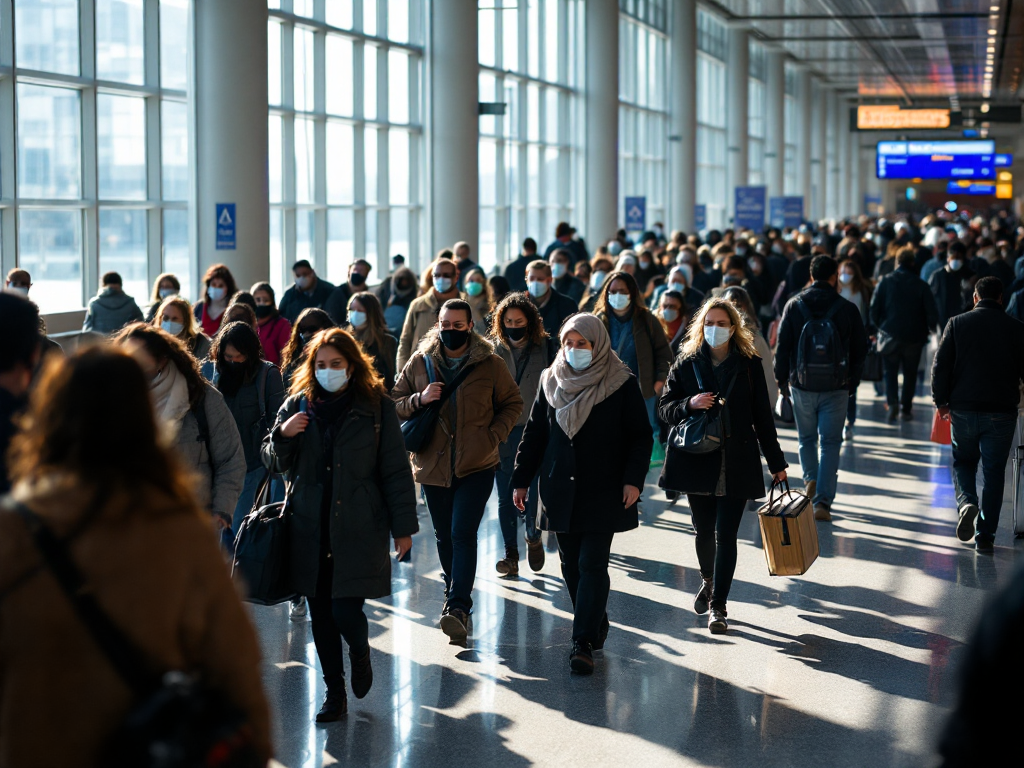New Measles Case Raises Health Concerns in Philadelphia
Philadelphia’s public health officials have confirmed a third case of measles within a short span, marking heightened awareness over the contagious virus in the region. This latest case, reported by the Philadelphia Department of Public Health, involved an individual who contracted the disease during travel abroad. Health authorities have identified Holy Redeemer Hospital in Abington Township and Pennsylvania Hospital in Philadelphia as exposure sites.
According to a public health alert, the infected person visited Pennsylvania Hospital’s emergency department on April 6, then Holy Redeemer Hospital’s emergency department two days later. Measles outbreaks typically result from unvaccinated individuals traveling overseas, bringing the virus into areas with lower immunization coverage. Health officials stress that despite Philadelphia’s generally high vaccination rate, these isolated cases highlight ongoing vulnerabilities in public health preparedness.
“Measles is an extremely contagious airborne virus that can cause cough, fever, rash, and in serious cases, encephalitis and even death,” stated Philadelphia Department of Public Health.
Authorities urge residents who visited these locations during specified times and are unsure of their vaccination status to consult their healthcare providers immediately. Measles is especially dangerous for children under the age of one, immune-compromised individuals, and those who have never been vaccinated.
Public Health Commissioner Palak Raval-Nelson reassured the community, emphasizing the city’s high immunization coverage, but also noted the risk remains pronounced for those unvaccinated. Dr. Raval-Nelson urged the community to stay vigilant and consider this an opportunity to re-evaluate their immunization status.
Public Health Action and Potential Exposure
In response to these recent cases, the Philadelphia Department of Public Health has swiftly taken action, notifying healthcare providers citywide to maintain heightened awareness for any additional cases. Health officials have advised potentially exposed residents who have not been vaccinated or demonstrated immunity to undergo a quarantine period of 21 days from the date of possible exposure.
Health department spokesperson Jim Garrow underscored the seriousness of the situation, stating that while most vaccinated residents remain protected, a small fraction of vaccinated individuals could still be vulnerable due to the vaccine’s approximate 97% efficacy rate.
“It shouldn’t be a problem for most folks, but for babies who are under the age of 1 who haven’t gotten their first MMR vaccine, people who are immune-compromised, or folks who never got the vaccine, those are the folks who need to be careful and take extra steps,” noted Garrow.
Garrow’s statement highlights public health’s primary concern: protecting the community’s most vulnerable populations against highly contagious diseases such as measles. Although measles vaccination rates in Philadelphia are higher than the national average, healthcare officials caution against complacency, particularly in public spaces where the virus’s airborne transmission makes it especially contagious.
The Philadelphia Health Department recommends residents born after 1957 verify their vaccination records or immunity through healthcare providers, emphasizing that measles vaccines remain readily available for those in need. Individuals who lack confirmed immunity are strongly encouraged to get vaccinated promptly to mitigate the risk of further spread.
Historical Context and Broader Implications
Measles was declared eliminated in the United States in 2000, an achievement credited to robust vaccination campaigns. However, recent years have seen a resurgence of measles cases nationwide, driven largely by declining vaccination rates and global travel. In 2019, the United States experienced its largest measles outbreak since the disease’s elimination, with approximately 1,282 cases reported, primarily linked to unvaccinated individuals and international travel.
This current situation in Philadelphia mirrors similar challenges faced by several other communities across the country. Health experts attribute these outbreaks to gaps in vaccination coverage and misinformation regarding vaccine safety, which have led to increased susceptibility in certain populations.
“As vaccination rates across the country continue to drop, there are more and more opportunities for people who cannot be vaccinated to be exposed to this deadly disease,” emphasized Commissioner Raval-Nelson.
This latest measles outbreak underscores the continued importance of maintaining high vaccination rates to protect public health. Health departments nationwide persistently advocate for education and awareness campaigns aimed at dispelling vaccine misinformation and increasing vaccination acceptance.
With measles capable of lingering in the air for hours after an infected individual passes through, public places such as hospitals, airports, and schools become high-risk environments for transmission. Robust public health strategies, including aggressive vaccination campaigns and prompt identification of cases, remain critical tools for preventing wider outbreaks.
Philadelphia health officials continue to closely monitor the situation, prepared for prompt response should additional cases appear. The city’s health authorities urge residents to verify their measles immunity status promptly and adhere strictly to public health guidelines outlined in recent advisories. Maintaining vigilance remains paramount in preventing further spread of measles within the community and beyond.


